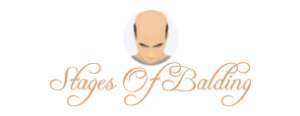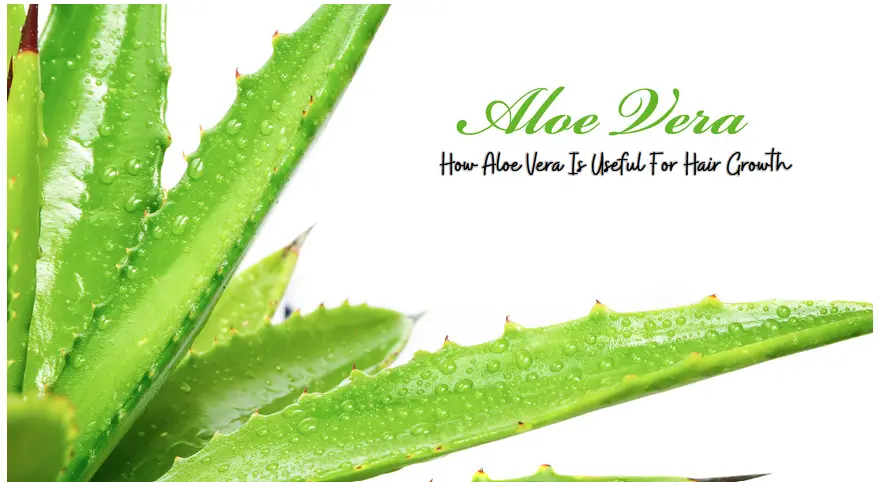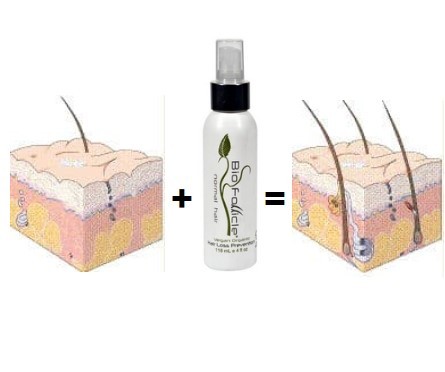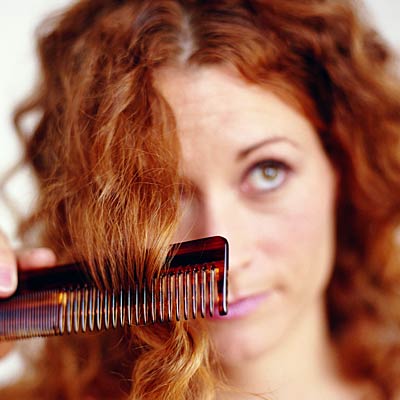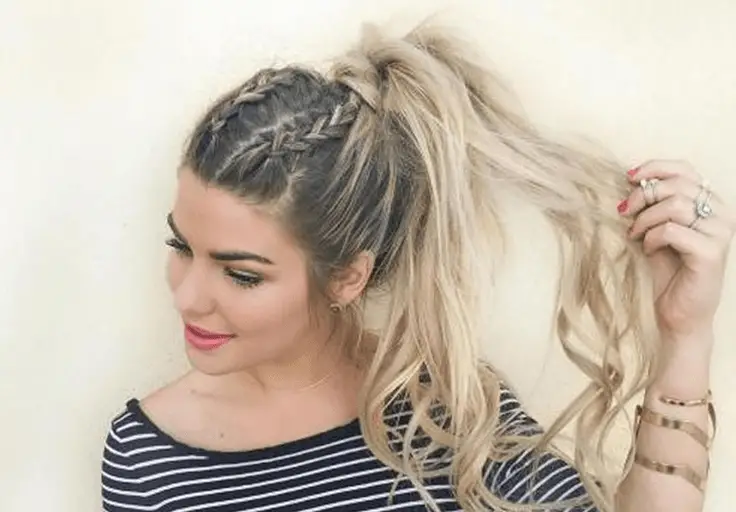Discover the myriad of ways how aloe vera is useful for hair from treating dandruff to promoting hair growth. Dive into our comprehensive guide and embrace the natural magic of aloe vera for your hair care routine.
For centuries, the succulent plant known as aloe vera has been revered for its myriad of health and beauty benefits. Originating from the Arabian Peninsula, this green, spiky plant has found its way into various cultures, rituals, and daily routines, especially when it comes to hair care.
Historically, queens like Cleopatra and Nefertiti were believed to have used aloe vera as part of their beauty regimens. The gel-like substance inside its thick leaves was considered a secret potion for lustrous and healthy hair. Fast forward to today, and aloe vera is a staple ingredient in numerous hair care products, from shampoos to conditioners, and even hair masks. Its natural properties not only soothe the scalp but also promote hair growth and combat hair-related issues.
In this article, we’ll delve deep into the wonders of aloe vera for hair. From its historical significance to modern-day applications, we’ll explore why this plant is a must-have in your hair care routine. Whether you’re battling dandruff, seeking more shine, or just curious about natural hair care remedies, this guide is tailored for you.
Did You Know?
-
- Aloe vera is not just limited to hair care. Its healing properties make it a popular choice for skincare, wound healing, and even digestive health.
- The plant is often termed the “plant of immortality” due to its diverse range of benefits.
Discover the best sulfate-free shampoos for keratin-treated hair and why they matter.
Ready to embark on a journey with us? Dive in and uncover the magic of aloe vera for hair. And if you’re keen on exploring more natural remedies, don’t miss out on our comprehensive guide on herbs that stimulate hair growth.
How Aloe Vera is Useful for Hair
Aloe vera, often dubbed the ‘miracle plant’, is a powerhouse of nutrients and benefits for hair. It’s packed with vitamins, enzymes, and amino acids that promote healthy hair growth, combat dandruff, and provide deep hydration. Specifically, aloe vera:
- Moisturizes the Scalp: Its hydrating properties prevent dryness and reduce itchiness.
- Strengthens Hair: Aloe vera contains vitamins A, C, and E, all of which contribute to cell turnover, promoting healthy cell growth and shiny hair.
- Reduces Dandruff: Its antifungal and antibacterial properties help combat dandruff and flakiness.
- Promotes Hair Growth: The plant’s enzymes can eradicate dead skin cells on the scalp that can clog hair follicles, hindering hair growth.
Incorporating aloe vera into your hair care routine can lead to lustrous, healthier hair. Whether applied directly or through products, it’s a natural solution to many hair woes.
What is Aloe Vera?
Aloe vera, often termed the “miracle plant” or the “natural healer”, is a succulent plant species from the genus Aloe. With its origins in the Arabian Peninsula, this green, spiky plant has now spread globally, gracing gardens and homes with its unique appearance and myriad benefits.
The plant is characterized by its thick, pointed leaves filled with a transparent gel. This gel is the magic potion that has been used for centuries in various medicinal, cosmetic, and health purposes. From soothing sunburns to acting as a natural moisturizer, aloe vera gel is a versatile remedy that’s easily accessible.
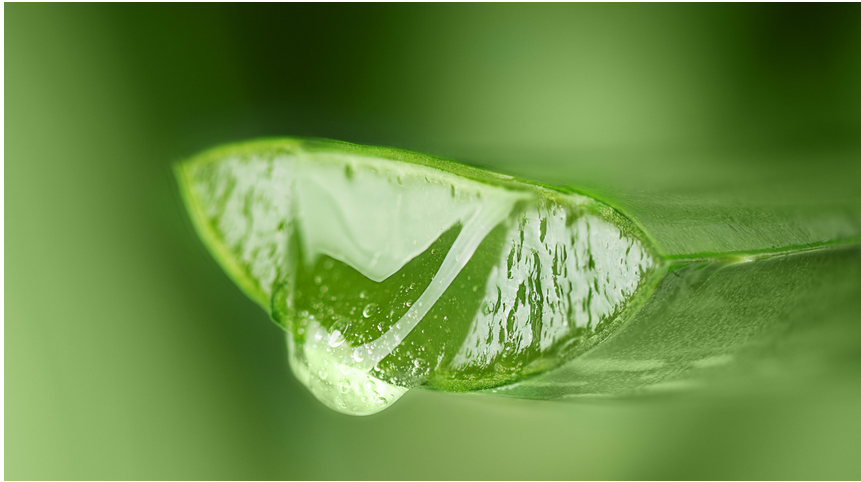
Why is Aloe Vera Beneficial for Hair?
The benefits of aloe vera for hair are vast and varied. The gel inside the plant is packed with nutrients and compounds that make it an excellent choice for hair care. Here’s a breakdown of what makes alloe vera a hair care superstar:
- Vitamins: Aloe vera is rich in vitamins A, C, and E. These vitamins are essential for cell turnover, promoting healthy cell growth which in turn leads to shiny and robust hair.
- Anti-inflammatory Properties: The plant is known for its soothing properties, making it an excellent remedy for scalp conditions like dandruff or seborrheic dermatitis. The fatty acids in aloe vera have anti-inflammatory characteristics that can calm an itchy scalp.
- Enzymes: Aloe contains enzymes that can help exfoliate the scalp, getting rid of dead skin cells. This can further promote hair growth.
- Moisturizing Qualities: The gel can hydrate the hair and lock in moisture, preventing dry and frizzy hair.
| Component | Benefit for Hair |
|---|---|
| Vitamins | Promotes shiny hair |
| Fatty Acids | Soothes itchy scalp |
| Enzymes | Exfoliates the scalp |
| Moisture | Prevents dryness |
For those who have been battling hair issues, whether it’s dryness, hair fall, or lackluster strands, aloe vera might just be the natural remedy you’ve been searching for.
Curious about other natural remedies? Check out our guide on Ayurvedic treatments for hair loss and regrowth.
Proven Benefits of Aloe Vera for Hair
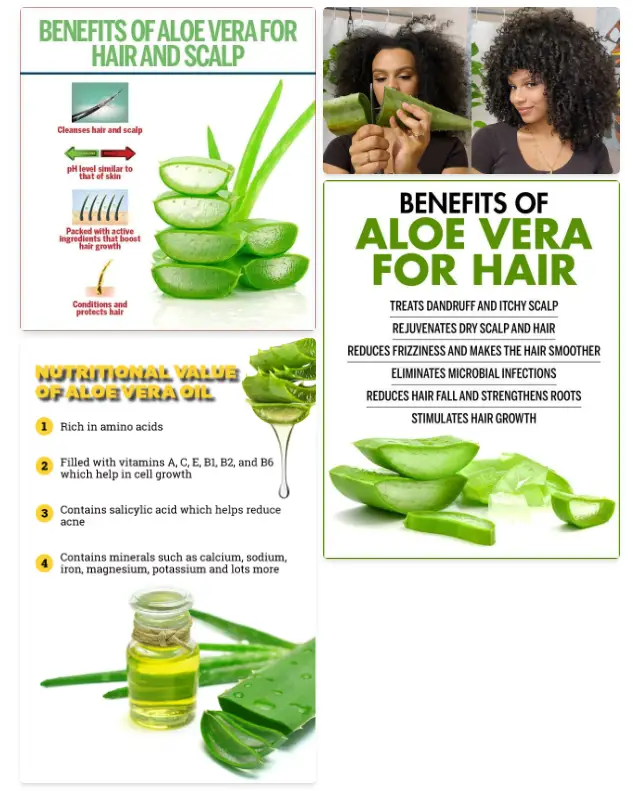
From ancient civilizations to modern-day beauty regimes, aloe vera has been a constant companion for those seeking natural remedies for hair woes. Its myriad benefits have been celebrated and utilized across cultures, making it a staple in many hair care routines. Let’s delve into some of the proven benefits of this “miracle plant” for hair.
Treating Dandruff and Itchy Scalp
Dandruff and an itchy scalp can be both embarrassing and uncomfortable. Various factors, from dry skin to fungal infections, can lead to these conditions. Enter aloe vera, a natural solution that’s been used for centuries to combat these issues. The anti-inflammatory properties of aloe vera help soothe the scalp, reducing itchiness and flakiness. Its antifungal and antibacterial properties also help in tackling the root causes of dandruff.
Personal Anecdote: I remember my grandmother always turning to her aloe vera plant whenever I complained about an itchy scalp as a child. A simple application of the gel would provide instant relief, and in a few days, the dandruff would be gone.
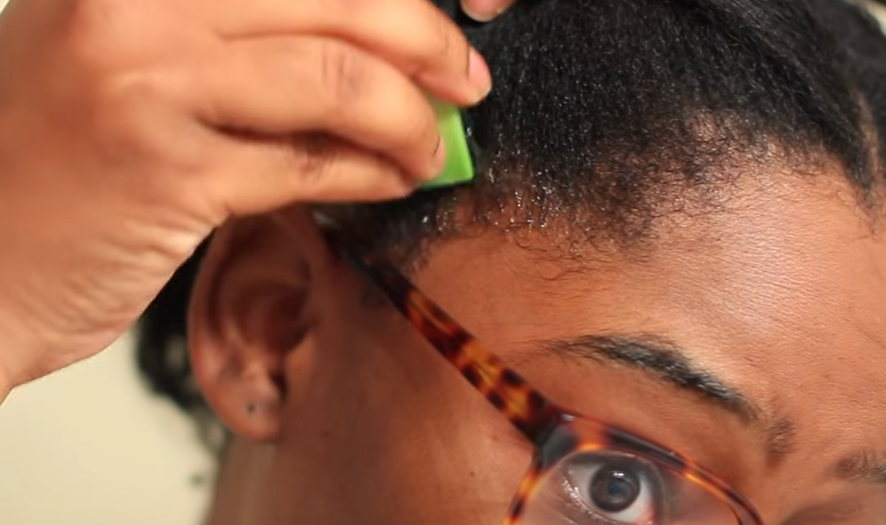
For those seeking a holistic approach to hair care, integrating aloe vera can be transformative. Discover more natural remedies, including Ayurvedic treatments for hair loss and regrowth, here.
Deep Cleaning Oily Hair
Oily hair can often feel heavy, greasy, and difficult to manage. The accumulation of excess sebum on the scalp can lead to this condition. Aloe vera, with its deep cleansing properties, can help tackle this issue. The gel can strip away the excess oil and impurities without damaging the hair or making it dry. This ensures that the hair remains soft, shiny, and free from the greasiness that weighs it down.
Personal Anecdote: During my teenage years, I struggled with extremely oily hair. Shampoos would provide temporary relief, but the oiliness would return in a day. It was only when I started using aloe vera gel as a pre-shampoo treatment that I saw a lasting difference.
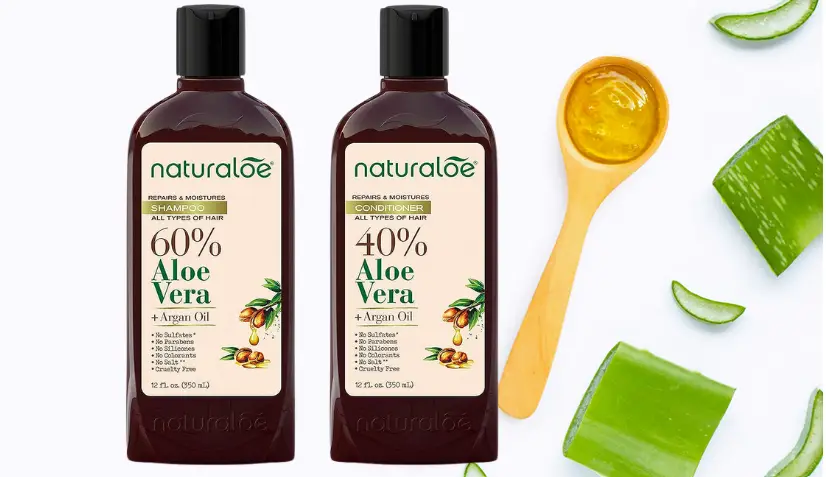
See Amazon Reviews About This Aloe Vera Shampoo
Strengthening and Repairing Hair Strands
The health of our hair is often a reflection of the nutrients it receives. Aloe vera is packed with vitamins A, C, and E – all of which play a crucial role in the health of our hair. While vitamin A promotes healthy cell growth, vitamins C and E boost circulation to the scalp, ensuring better nutrient absorption. The result? Stronger, shinier, and healthier hair strands.
Personal Anecdote: After a particularly bad hair coloring experience, my hair was left brittle and lifeless. A friend recommended a DIY aloe vera hair mask. Within a few applications, I noticed my hair regaining its strength and shine.
Looking for more tips on hair growth? Check out our guide on how to make your hair grow 5 inches in a week.
Potential Hair Growth Promotion
The quest for remedies to promote hair growth is as old as time. While aloe vera has been touted as a potential solution, it’s essential to approach this claim with a balanced perspective. Some studies suggest that aloe vera can remove dead cells from the scalp, improving hair follicle health and creating a conducive environment for hair growth. However, more extensive research is needed to conclusively establish this benefit.
Personal Anecdote: While I didn’t notice a dramatic increase in hair length, using aloe vera consistently certainly made my hair feel healthier and reduced hair fall.
How to Use Aloe Vera for Hair Care
Harnessing the power of aloe vera for hair care is both an art and a science. This “miracle plant” offers a plethora of benefits, but knowing how to use it effectively can make all the difference. Whether you’re looking to soothe an itchy scalp, add some shine, or combat hair loss, aloe vera has got you covered. Let’s explore some of the best ways to incorporate this natural wonder into your hair care routine.
Direct Application of Aloe Vera Gel
Using aloe vera in its purest form can be incredibly beneficial. Here’s a step-by-step guide on how to apply raw aloe vera gel to your hair:
- Harvesting the Gel: Start by cutting a leaf from the aloe vera plant. Slice it open to reveal the transparent gel inside.
- Extraction: Using a spoon, scoop out the gel and collect it in a bowl.
- Application: After washing your hair, apply the gel directly to your scalp and hair. Massage it in circular motions, ensuring it covers all areas.
- Resting: Let the gel sit on your hair for about 30 minutes. This allows the nutrients to penetrate deeply.
- Rinsing: Wash off the gel using lukewarm water. You can follow up with your regular shampoo and conditioner if desired.
Personal Anecdote: I remember the first time I applied raw aloe vera gel to my hair. The cooling sensation was immediate, and after rinsing it off, my hair felt incredibly soft and looked shinier.
For more natural hair care tips, check out our guide on how to regrow lost hair naturally in just 15 minutes a day.
DIY Aloe Vera Hair Masks
For those who love a good DIY, aloe vera hair masks can be a game-changer. Here are some recipes to try:
Aloe Vera and Coconut Oil Mask:
-
- Mix equal parts of aloe vera gel and coconut oil.
- Apply the mixture to your hair and scalp.
- Leave it on for 30 minutes before rinsing.
Aloe Vera and Honey Mask:
-
- Combine two tablespoons of aloe vera gel with one tablespoon of honey.
- Apply and leave on for 20 minutes.
- Rinse with lukewarm water.
Aloe Vera and Yogurt Mask:
-
- Mix aloe vera gel with some plain yogurt until you get a smooth paste.
- Apply to your hair, focusing on the ends.
- Rinse after 30 minutes.
Personal Anecdote: The aloe vera and coconut oil mask is my personal favorite. It leaves my hair feeling soft, hydrated, and reduces frizz.
Looking for more hair treatments? Discover our range of products designed for various stages of balding.
Aloe Vera Products for Hair Loss
While DIYs are great, sometimes you need a product that’s ready to use. The market is flooded with aloe vera products, but here are some of the best:
- Aloe Vera Shampoo: Great for daily use, it cleanses the scalp while ensuring it remains hydrated.
- Aloe Vera Conditioner: Locks in moisture and leaves hair feeling soft and manageable.
- Aloe Vera Hair Serum: Perfect for those with frizzy hair. It tames flyaways and adds a shine.
Personal Anecdote: I recently tried an aloe vera hair serum, and the results were astonishing. Not only did it tame my frizz, but it also made my hair look salon-styled.
Curious about other hair care products? Read our in-depth NourishVita reviews to find out more.
FAQs about Aloe Vera for Hair
Aloe vera has been a staple in hair care routines for centuries, but with its rising popularity, many questions have emerged. Let’s address some of the most frequently asked questions about using aloe vera for hair.
Is Aloe Vera Safe for All Hair Types?
Absolutely! One of the reasons aloe vera is so popular is its versatility. Whether you have curly, straight, wavy, or coily hair, aloe vera can be beneficial. It hydrates dry hair, reduces frizz in curly hair, and adds shine to dull hair. However, as with any product, it’s always a good idea to do a patch test first to ensure you don’t have any allergic reactions.
Personal Anecdote: I have friends with various hair types, from pin-straight to tight curls. Each one of them has incorporated aloe vera into their routines in some form and has only had positive things to say.
Can Aloe Vera Cause Hair Loss?
There’s a misconception that aloe vera can cause hair loss. In reality, aloe vera is known to promote hair health and reduce hair fall. It nourishes the scalp, strengthens hair follicles, and can even stimulate hair growth in some cases. However, if you’re allergic to aloe vera or use a product with added chemicals, it might lead to hair issues.
Personal Anecdote: When I first heard about this myth, I was taken aback. I’ve been using aloe vera for years, and not only has it not caused hair loss, but it’s also made my hair healthier.
How Often Should I Use Aloe Vera on My Hair?
The frequency of using aloe vera largely depends on your hair type and needs. For general maintenance, once a week is sufficient. However, if you’re trying to address specific issues like dandruff or an itchy scalp, you can use it 2-3 times a week. Always remember to listen to your hair and scalp. If they feel overloaded, reduce the frequency.
Personal Anecdote: I generally use aloe vera gel as a pre-shampoo treatment once a week. It keeps my hair in top condition without making it feel heavy or greasy.
Are There Any Side Effects of Aloe Vera on Hair?
While aloe vera is generally safe, some people might experience side effects, especially if they’re allergic to the plant. Possible side effects include redness, itchiness, and inflammation. It’s crucial to do a patch test before applying it all over your scalp. Also, ensure that you’re using pure aloe vera gel without any harmful additives.
Personal Anecdote: A friend once bought a cheap aloe vera gel from a local store. Instead of the expected benefits, she experienced itchiness. We later discovered the product had several additives. Always go for pure aloe vera products!
Concerned about hair loss? Dive deeper into the stages 1 treatments for hair loss here.
Conclusion and Final Thoughts
As we wrap up this comprehensive guide on aloe vera for hair, it’s evident that this natural ingredient has stood the test of time for a reason. From ancient civilizations to modern-day beauty routines, aloe vera continues to be a cherished component in hair care.
The myriad of benefits it offers, from treating dandruff to promoting hair growth, makes it a versatile and effective solution for various hair concerns. Whether you’re battling an itchy scalp or simply looking to add some shine to your tresses, aloe vera can be your go-to remedy.
Personal Anecdote: I remember my grandmother always had an aloe vera plant in her garden. She would often tell me stories of how she used its gel to maintain her luscious locks. Following in her footsteps, I’ve incorporated aloe vera into my routine and have witnessed its magic firsthand.
If you haven’t already, I strongly encourage you to introduce aloe vera into your hair care regimen. Whether you opt for the raw gel directly from the plant or choose from the plethora of aloe-infused products available in the market, your hair will surely thank you.
- AI Powered Bald Filter Online 2024: See Yourself with No Hair! - January 19, 2024
- Harklinikken Bad Reviews 2024: Analyzing Negative Feedbacks - January 18, 2024
- How to Get the Alex Eubank Hair | Step-By-Step Tutorial 2024 - January 18, 2024
